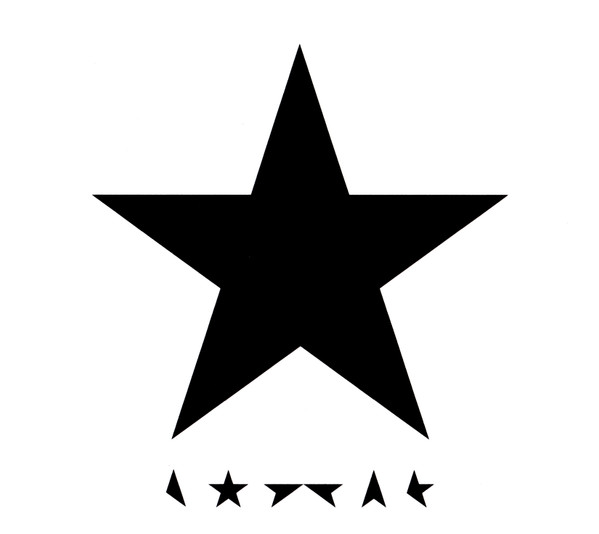Second of all, forget all the noise about Blackstar being a jazz album. Bowie played sax before he played guitar, and that instrument has featured on practically every album he’s ever made, whether he’s played it or got somebody else to. This is a Bowie album, and can be classified as rock if you need a genre to label it. (In fact, two songs, “Sue (Or In A Season Of Crime)” and its B-side, “’Tis A Pity She Was A Whore”, have been re-recorded to sound less like free jazz.)
Third of all, even though the actual title is ★, Blackstar is a lot easier to type, just like we’d alternately refer to Led Zeppelin IV as Zoso and The Artist Who’s Once Again Known As Prince is called just that.
While we’re at it, death has been one of Bowie’s go-to subject matters for practically every album he’s made, going back as far as “Please Mr. Gravedigger”, through obvious songs like “Rock ‘N Roll Suicide”, deep cuts like “Time”, covers like “My Death”, and so forth. To say he predicted his own demise down to the day is a bit of a stretch, but a sense of his own mortality likely had a lot to do with why he laid low for the better part of this century.
Blackstar is a daring release, sticking with the minimalistic graphics approach from The Next Day (which still seems like a “new” album, which just goes to show what three years can mean in a career like Bowie’s). Musically, it’s most reminiscent of that album, and Heathen, but good luck figuring out what the words really “mean”. Best of all, with its seven songs totaling 41 minutes, it’s easy to ingest, and hear again.
The title track, which comes in at a whopping ten minutes, fades in to introduce a clattering of electronic drums and a Mideastern melody speaking of some foreign village wherein lies, in “the center of it all,” not the Milford Plaza but “your eyes”. There are a few big accents, and a digital scramble brings us to another location on the planet where the title becomes a main motif in the form a grand ballad that Bowie could write in his sleep, and has. After a few minutes of that, the opening section is repeated over the new tempo until then end. Following a few odd inhales, “’Tis A Pity She Was A Whore” is upbeat, with a not-quite-jungle arrangement. Easily the most striking song on the album, “Lazarus” was also the best choice to promote the album upon release. Considering that the song shares a title with a Bowie-sanctioned Broadway musical based on The Man Who Fell To Earth, the lyrics can be taken both in and out of that context.
“Sue” had already been used to promote the most recent hits collection, but sounds better here among her siblings. “Girl Loves Me” seems designed to provoke, from its parental advisory-baiting hook and lyrics that sound like Alex and his droogs. Opening with a slow piano and sax, “Dollar Days” switches from latter-day Pink Floyd to a more recognizable Bowie lament once the voice kicks in. It carries on in that vein until a provocative crossfade into “I Can’t Give Everything Away”, the upbeat conclusion, complete with echoes of the harmonica from “A New Career In A New Town” and other sounds that touch on so many stages of his catalog. Its final seconds seem both resolved and unresolved.
Blackstar will never considered as another mere chapter in Bowie’s catalog, which is too bad, since it already showed promise in the 48 or so hours people had to experience it without time’s definitive stamp. Again, its relatively short length invites multiple repeat plays, and thus more opportunity for the elements to reveal themselves. Too many of the lyrics seem foreboding, but that can’t be helped. As far as he was concerned, his next musical adventure would happen whenever it did.
David Bowie ★ (2016)—4

No comments:
Post a Comment